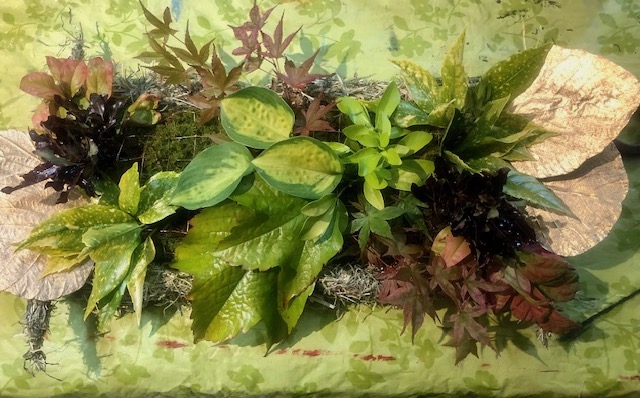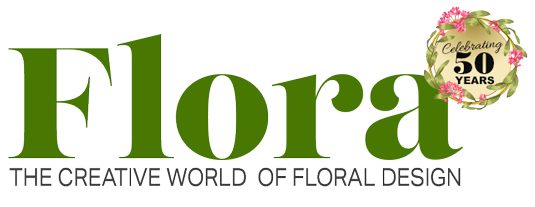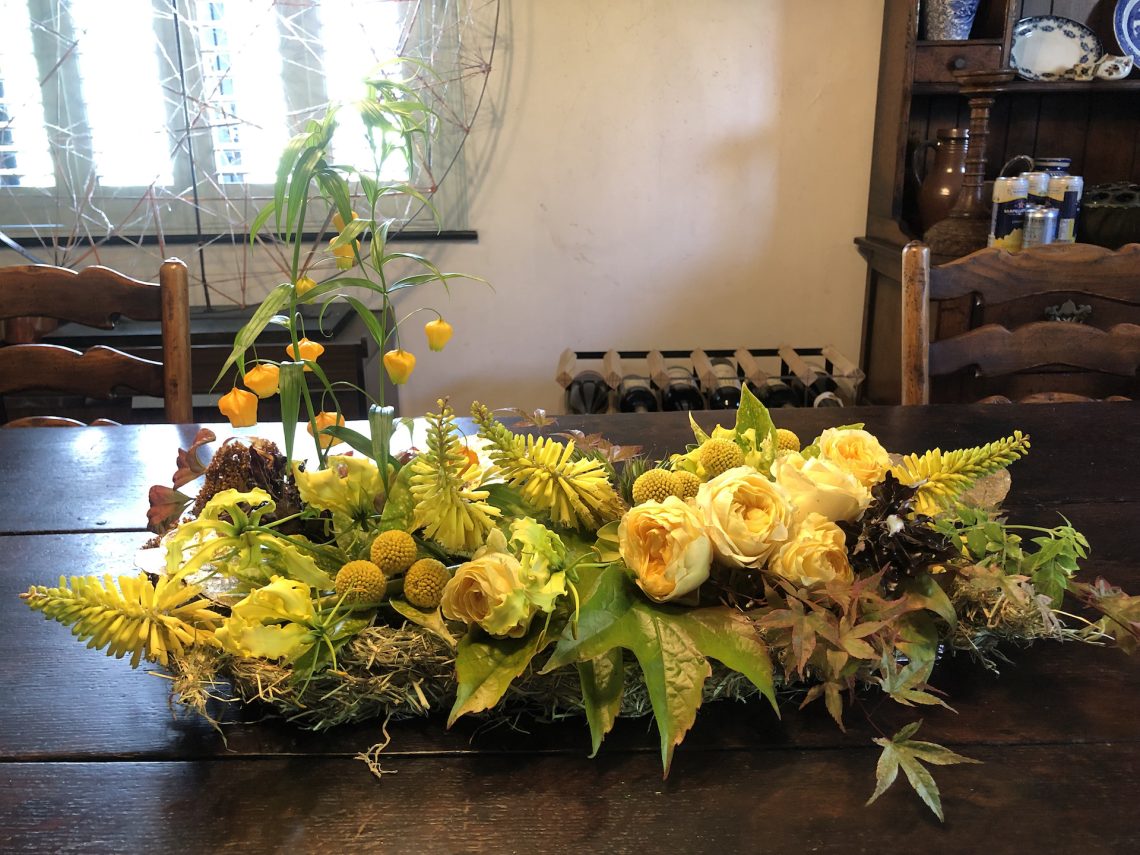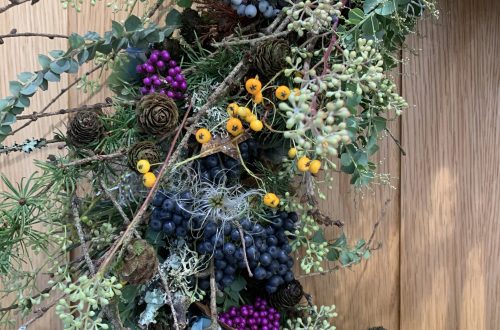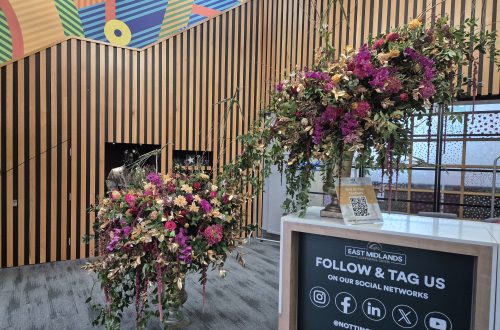We asked Jacqui Arnold to create a design to celebrate our magazine’s 50th year in continuous print and this is the delightful tapestry she came up with.
My inspiration for this foam free design came from my love of textural contrasts creating overall harmony within a design. This foam free method also proves foam is not an essential component within a tapestry design.
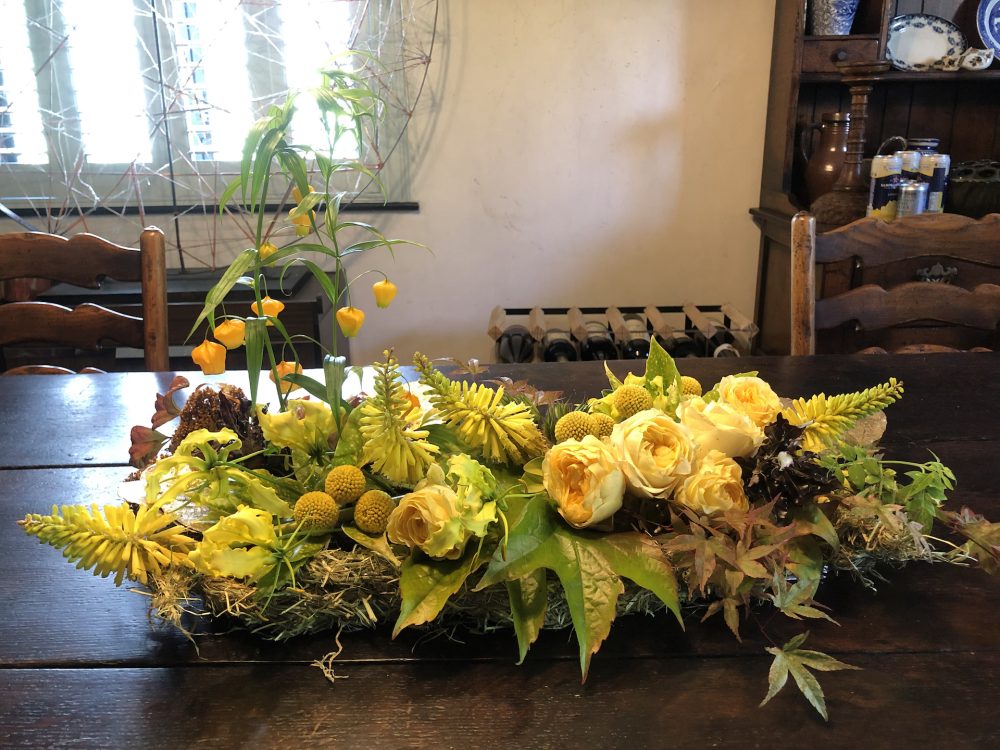
Ingredients
1x low oblong Perspex container (5cm/2 inches depth)
Hay
Flat moss
Gold bullion wire
Biodegradable copper wire mesh
Wooden skewer
Wire cutters
Drill/fine wire
Selection of foliage with emphasis on textural contrasts; e.g. Nandina, Aucuba japonica, Parthenocissus quinquefolia (Virginia creeper), Acer, Pittosporum ‘Tom Thumb’
6 dried Cobra leaves, painted gold
6x Kniphofia (yellow)
5x Gloriosa (yellow)
2x Sandersonia
8x Craspedia (billy buttons)
2x Amaranthus
Step by Step
Step 1
Begin by making four long shapes with the hay and then bind them with the gold bullion wire creating flexible narrow strips the length of your container. Twist two strips together for each of the longer sides. Make four further strips, each the width of your container, again twisting two strips together for each side.
Step 2
Drill small holes in each corner of the Perspex container and attach the twisted strips with
fine wire so they cover the outside of the container. The strips could also be attached by wrapping the wire all the way around the outside if it is not possible to drill holes in your container.
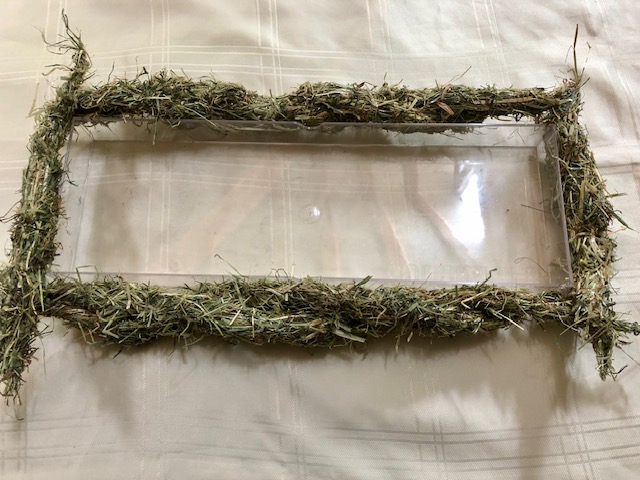
Step 3
Measure the container and use wire cutters to cut a piece of biodegradable wire approximately 20cm longer and 20cm wider than your container. Then place layers of flat moss onto the wire, the same size as your container.
Step 4
Join the wire mess ends together so that the moss fits your container exactly. Fill with water so the moss is submerged.
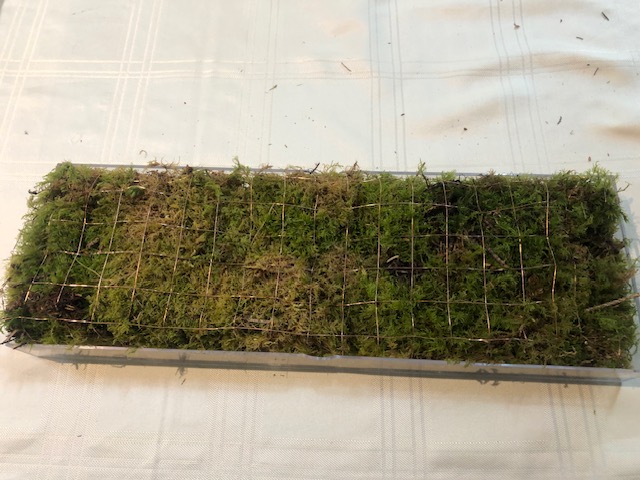
Step 5
Group and wire some of the softer foliage together and use the skewer to make holes in the moss before adding your flowers.
